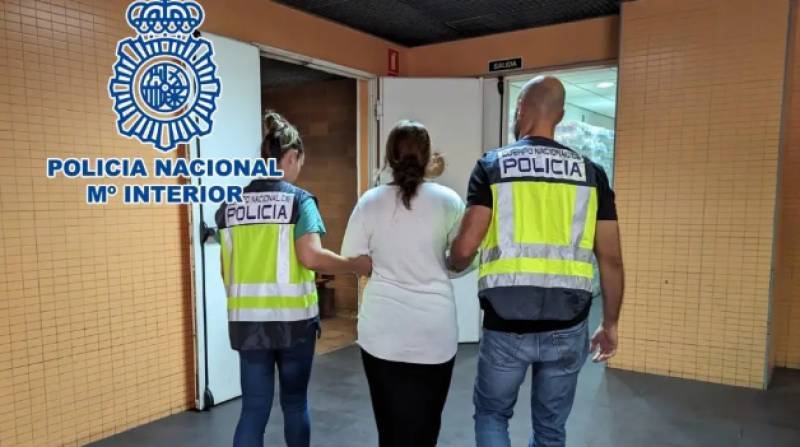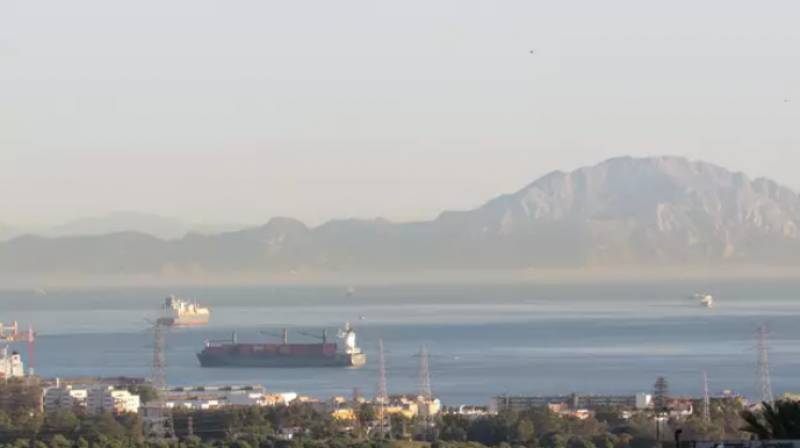- Region
- Águilas
- Alhama de Murcia
- Jumilla
- Lorca
- Los Alcázares
- Mazarrón
- San Javier
-
ALL AREAS & TOWNS
- AREAS
- SOUTH WEST
- MAR MENOR
- MURCIA CITY & CENTRAL
- NORTH & NORTH WEST
- TOWNS
- Abanilla
- Abarán
- Aguilas
- Alamillo
- Alcantarilla
- Aledo
- Alhama de Murcia
- Archena
- Balsicas
- Blanca
- Bolnuevo
- Bullas
- Cañadas del Romero
- Cabo de Palos
- Calasparra
- Camping Bolnuevo
- Campo De Ricote
- Camposol
- Canada De La Lena
- Caravaca de la Cruz
- Cartagena
- Cehegin
- Ceuti
- Cieza
- Condado de Alhama
- Corvera
- Costa Cálida
- Cuevas De Almanzora
- Cuevas de Reyllo
- El Carmoli
- El Mojon
- El Molino (Puerto Lumbreras)
- El Pareton / Cantareros
- El Raso
- El Valle Golf Resort
- Fortuna
- Fuente Alamo
- Hacienda del Alamo Golf Resort
- Hacienda Riquelme Golf Resort
- Isla Plana
- Islas Menores & Mar de Cristal
- Jumilla
- La Azohia
- La Charca
- La Manga Club
- La Manga del Mar Menor
- La Pinilla
- La Puebla
- La Torre
- La Torre Golf Resort
- La Unión
- Las Palas
- Las Ramblas
- Las Ramblas Golf
- Las Torres de Cotillas
- Leiva
- Librilla
- Lo Pagan
- Lo Santiago
- Lorca
- Lorquí
- Los Alcázares
- Los Balcones
- Los Belones
- Los Canovas
- Los Nietos
- Los Perez (Tallante)
- Los Urrutias
- Los Ventorrillos
- Mar De Cristal
- Mar Menor
- Mar Menor Golf Resort
- Mazarrón
- Mazarrón Country Club
- Molina de Segura
- Moratalla
- Mula
- Murcia City
- Murcia Property
- Pareton
- Peraleja Golf Resort
- Perin
- Pilar de la Horadada
- Pinar de Campoverde
- Pinoso
- Playa Honda
- Playa Honda / Playa Paraíso
- Pliego
- Portmán
- Pozo Estrecho
- Puerto de Mazarrón
- Puerto Lumbreras
- Puntas De Calnegre
- Region of Murcia
- Ricote
- Roda Golf Resort
- Roldan
- Roldan and Lo Ferro
- San Javier
- San Pedro del Pinatar
- Santiago de la Ribera
- Sierra Espuña
- Sucina
- Tallante
- Terrazas de la Torre Golf Resort
- Torre Pacheco
- Totana
- What's On Weekly Bulletin
- Yecla


- EDITIONS:
 Spanish News Today
Spanish News Today
 Alicante Today
Alicante Today
 Andalucia Today
Andalucia Today
article_detail
Spanish News Today Editors Roundup Weekly Bulletin Aug 18

FEATURED ARTICLES: "England vs Spain in the World Cup Final this weekend!" and "Everything you need to know about the Digital Certificate in Spain"
What a week it’s been!
We had a festivo earlier in the week, but the Spanish women’s football team didn’t take any time off as they were busy making history on the other side of the world; the stats have been released for the passenger numbers at Spain’s airports this summer and the results are less than promising for some; and Spanish readers have been salivating over the juicy tale of murder and intrigue involving a Spanish citizen in Thailand that will probably be made into a Netflix true crime miniseries in a couple of years’ time.
Then there’s the continuing and worrying wave of fights, rapes and sudden deaths involving foreign tourists in Spain that plagues the Mediterranean every summer, and we’ve got some useful info for you about the useful but devilish ‘digital certificate’ which residents in Spain need in order to be able to do any sort of official paperwork online.
Get ready for an action-packed edition of your weekly bulletin…
England v Spain in the World Cup Final this weekend!
You may have noticed that the FIFA Women’s World Cup 2023 is being played in Australia and New Zealand this summer, and in a thrilling development for Brits in Spain, the two countries have reached the final of the competition and will play each other for the title of best in the world this weekend.
Spain beat Sweden in the semifinals this Tuesday just gone, with Salma Paralluelo once again scoring the winning goal, while England’s Lionesses beat co-hosts Australia 3-1 in the semis on Wednesday to put them through to the grand final.
This is the first final either team has ever played in, making history for both nations. Sweden will play Australia in the match for third place on Saturday at 10am Spanish time, while the final will be played on Sunday at 12pm Spanish time.
This has undoubtedly been the most successful Women’s World Cup in the sport’s history in terms of interest around the world and viewer numbers for the games. For English and Spanish fans, at least, it will certainly be one to remember. Who are you supporting?
Digital certificate: doing paperwork in Spain online

Red tape. Everybody loves it. What’s better than spending hours filling out forms and submitting auxiliary documents to support your application to some obscure Spanish government office?
If you’ve ever tried to do something like this yourself online – be it filing taxes, sorting out your social security contributions or pension payments, checking your residency status on the padrón or paying parking tickets – you’ll know that you can get up to a certain point in the process before you’re asked for a ‘ceritficado digital’, a digital certificate, and you’re stuffed if you don’t have one.
What this digital certificate is, basically, is a virtual ID card. It’s a way the authorities can use to identify you and make sure you are who you say you are online, and it’s required by the websites of pretty much every public institution when you try to carry out any personal process.
To get yours, you’ll have to request it from any one of the several accepted certification authorities, confirm your identity (either in person, on the app, with an electronic NIE or by video) and then download it.
After going through this process, you’ll be given a document to download to your computer and which will be saved in your internet browser for later use. Then, the next time you’re asked to provide a digital certificate to prove your identity when paying those speeding fines online, all you have to do is select the option for your digital certificate when prompted at the appropriate stage and Roberto’s your uncle.
Or you could just pay a ‘gestor’ to take care of all that sort of thing for you. Your choice.
Puente de agosto
This Tuesday just gone, August 15, was a public holiday in all of Spain for the occasion of the Feast of the Assumption, known in Spanish as ‘Fiesta de la Asunción’.
It is also observed as a religious holiday in a lot of predominantly Catholic countries, such as Italy, but in Spain it has to be said that it’s now probably more important as a secular bank holiday in the middle of the summer, a chance for people to get an extra day off work for their summer holidays. And since it fell on a Tuesday this year, it was a great opportunity for people to take the Monday off too and have themselves a 4-day weekend.
Still, it’s interesting to note the history of the Feast of the Assumption, which dates back to 682 when it was officially established by Pope Sergius I, making it one of the oldest Marian feasts celebrated by the Catholic Church.

The ‘Assumption’ refers to the belief that the Virgin Mary, mother of Jesus Christ, was taken up body and soul into heaven after her life on earth had ended. And, as you may just have noticed, almost every city, town, village and hole in the ground in Spain professes a deep and undying devotion to its local version of the Virgin, which makes August 15 an especially important feast.
It was the Reyes Católicos, those Catholic monarchs Queen Isabella I of Castile and King Ferdinand II of Aragón who were arguably Spain’s most important historical power couple, who made the Virgin Mary such a prominent symbol of unity and national identity in the 15th century when they wrested back control of the Iberian Peninsula from Moorish rule.
Nowadays, the Feast of the Assumption is pretty much just one more festivo in the calendar, when shops and businesses shut up for the day, but there are still religious processions and special devotional masses held on this date in some towns. Some people also like to eat special virgin doughnuts, the ‘Roscón de la Virgen’ or ‘Rosquillas de la Asunción’, which are basically sweet pastries flavoured with anise, lemon, or orange zest and topped with sugar glaze.
You’re not too late to get your hands on one of these delectable treats… as a way of honouring the Virgin Mary and Spanish culture, of course. Any excuse for a bit of extra sugar and cholesterol!
Summer of hell
We’re well used to stories about Brits behaving badly during the summer months and tales of in-flight antics and blundering tourists are usually good for a chuckle, but this year, on the Spanish islands in particular, the situation has taken a really sinister turn.
Every day there’s news of foreigners arrested for crimes ranging from the mildly belligerent drunken carry-on to the altogether more menacing knife fights and sexual assaults.
This past week, the party hotspot of Magaluf, an always-popular destination for Brits on the Balearic Island of Mallorca, has been the centre of some truly horrific goings-on. The first arrest doesn’t involve your expected lager lout, but rather a well-respected female soldier who was just 19 when she carried out a horror attack.
 The original story dates back to 2019, when now 23-year-old Sydney Cole was on an all-day drinking session with two pals. An argument broke out between the girls that resulted in the British soldier reportedly slashing the throat of Lance Corporal Sarah Garrity with a broken glass, landing her in intensive care with 14 stitches in her neck.
The original story dates back to 2019, when now 23-year-old Sydney Cole was on an all-day drinking session with two pals. An argument broke out between the girls that resulted in the British soldier reportedly slashing the throat of Lance Corporal Sarah Garrity with a broken glass, landing her in intensive care with 14 stitches in her neck.Cole was indicted despite the fact that her victim didn’t want to press charges, but she was released on bail while prosecutors gathered evidence. She failed to show up for follow-up questioning though, and police learned she had moved address without letting them know.
An international arrest warrant was issued and Cole was eventually picked up by Spanish police this week and her trial is expected to begin before the year is out.
In the same resort town, a 29-year-old British man was arrested for his part in a drunken street brawl this week that left another youth bloodied and unconscious in the middle of the road. It’s unclear what sparked the brutal fight outside at takeaway in the early hours of the morning but we can assume that copious amounts of alcohol were involved.
The entire free-for-all, which took place on the notorious Punta Ballena strip filled with bars and nightclub, was filmed by stunned onlookers, many of whom jumped into the fray.
Staying in Punta Ballena and a 17-year-old British boy was allegedly sexually assaulted by a taxi driver on his way back to his hotel. The young man went to the police station with his mother and told officers that the driver began to grope him before demanding sex acts. A struggle ensued and the UK tourist hit his head on the car door while trying to escape. Police are now trying to track down the driver who will be investigated for physical and sexual assault.
We’re still in Mallorca, but this next crime involves six French tourists accused of gang raping an 18-year-old British girl. Surprise, surprise, the attack also occurred in Magaluf on August 14.
According to Guardia Civil reports, the girl met her attackers at a party and accompanied them back to their hotel at around 5am. Once they returned to one of the suspect’s rooms, the six men reportedly raped her and filmed the attack on their mobile phones.
Once she escaped her assailants, security officers from called the Guardia Civil, who were eventually able to identify the perpetrators based on the description provided by the Englishwoman. They also checked CCTV footage from the hotel’s surveillance cameras and verified their movements from earlier that night. The six were arrested and have already appeared in front of a judge in La Palma.
Moving across to the Canary Islands now and a tragedy of a different nature, where body of a 39-year-old holidaymaker from the UK was discovered on a hiking trail in Fuerteventura. The deceased woman was found just before 1pm on Sunday August 13, one of the hottest days recorded in Spain so far this summer.
While it’s suspected that she could have succumbed to heatstroke, a post mortem will be carried out in the coming days to confirm the cause of death. A Guardia Civil source added: “She was wearing sports clothes and appears to have been out hiking on her own.”
At the time of her death, meteorologists had issued a red warning for temperatures that were expected to reach the mid-40s in much of the Canary Islands. When the mercury hits this high, the authorities warn against any strenuous of prolonged exercise or activity outdoors.
There is some good news coming from the Canary Islands this week as hope has been renewed that missing Scottish man Gary Watson may still be alive. Five months after his disappearance, CCTV footage has emerged that shows Gary and another, older man on Avenida Las Playas and Avenida Italia shortly after the last sighting of the 53-year-old.

Gary travelled alone to Lanzarote to celebrate St Patrick’s Day on March 17 and spent the day he arrived relaxing by the pool. He even texted him mum to tell him how beautiful the resort was. That evening, the Scot enjoyed a few pints and watched a match in Bar 67 but no trace of him has been found after he left the bar at around 11.30pm.
Until now. Police in Lanzarote have appealed to the public to help them track down the mystery man filmed with Gary in the hopes that he might shed some light on the missing Scot’s whereabouts.
Finally, over to mainland Spain where police succeeded in taking three extremely dangerous Americans off the street in separate operations. All of the suspects are wanted in the US for heinous crimes against minors.
The first wanted molester is a 71-year-old man who US police believe is part of a criminal organisation dedicated to spreading pornographic material of minors online. Copious amounts of child porn were discovered in his Miami home but he fled the country for Honduras when he was released on bail.
Despite gaining citizenship here to avoid extradition, the suspect was recently found to be living a quiet life in Madrid in an expat community, where he was picked up this week.
The second case involves a 23-year-old from Michigan who contacted a child through a well-known gaming website and coerced her into sending him pornographic material of herself, which he later sold.
Incredibly, this paedophile was found studying for a Master’s Degree in Quantum Science and Technology at the University of Barcelona, where he was eventually arrested by Spanish police.
The third man, aged 55, came under suspicion in the US when his 12-year-old stepdaughter gave birth and a DNA test proved that he was the father. Getting wind that he was wanted for rape charges, the paedophile fled to Spain, where he first settled in Barcelona before living for several months in the Alicante resort of Benidorm. Eventually, the Guardia Civil tracked the man to the Gran Canaria town of Vecindario, where he was recently apprehended.
Murcia
Poor old Murcia airport. We really want to write something good about it, but they do make it hard on us. True, they won an award for cleanliness a few months back, and they’re trying so hard to be the shining replacement to San Javier airport that was promised back in 2019. Millions of euros are being pumped into the airport and new out-of-season flights to Madrid and Barcelona will be added this winter. But it’s still not enough to rescue Corvera airport from its woeful passenger numbers.
This July, 117,459 passengers used the airport, and almost half a million have passed through its terminal since the beginning of this year. Airport staff try to dress these figures up nicely – that’s a 6% increase on the same period in 2022 – but when you look at the bigger picture you can only say it’s disappointing.
For instance, the equivalent figure for the first seven months of the year 2007 at San Javier airport was around 1.2 million passengers, more than double what Corvera is currently pulling in.
Even so, the regional authorities are reporting great tourist numbers, at least as far as the number of people visiting tourist information centres is concerned. So what’s the disparity there? How are all these tourists getting to Murcia if not via the Region’s International Airport?
Well, some may drive down from France, and there are the cruise ships that stop in Cartagena, of course. But the bald truth is that Alicante airport is a much more popular choice for flyers than Murcia is. With better transport links, even to parts of the Region of Murcia, and more international destinations to choose from, it’s not surprising that Alicante airport got 1.7 million passengers in July alone – more than three times as many as Murcia has had all year.
The only other thing that puts the tiny town of Corvera in central Murcia on the map is its erstwhile golf course. Billed as yet another luxury residential golf resort when construction started back during the real estate boom of 2008, Corvera Golf Course & Country Club fell afoul of the bursting property bubble fizzled out and went into receivership in 2017 after being unable to pay its debts.
 Now, one Murcia businessman is hoping to turn all that around. Fernando Díez, CEO of the Torre Pacheco-based urban services company STV Gestión, recently bought Corvera golf course and has already invested a million euros of his own money into doing the place up and restoring it to its former glory.
Now, one Murcia businessman is hoping to turn all that around. Fernando Díez, CEO of the Torre Pacheco-based urban services company STV Gestión, recently bought Corvera golf course and has already invested a million euros of his own money into doing the place up and restoring it to its former glory.It’s exciting news not only for golfers but also for homeowners currently on the resort and those hoping to invest in an up-and-coming area, but it will not be a quick fix. After having lain dormant for so long, it will take a lot of time, money and technicians’ reports to be able to reopen the golf course. New owner Díez estimates it will be another four years at the earliest until Murcia golf lovers are able to tee off at Corvera once again.
Meanwhile, the so-called ‘umbrella wars’ that we’ve reported on before in Benidorm and other parts of Spain have reached the Region of Murcia. Beach hoggers who try to set up their parasols, deck chairs or towels on the sand at the crack of dawn to reserve a prime spot once the day gets hot enough to go down to the beach are now being penalised in the towns of San Pedro del Pinatar and San Javier.
These two municipalities have vowed to fine people up to 750 euros if they try to save themselves a spot on the beach. In truth, the San Javier measures have been in place since 2021 and the San Pedro ones since 2017, but it’s only this year that they have decided to crack down on the practice, which is becoming more widespread.
What’s more, if beach cleaning staff find any flips flops, bags, towels or similar used to mark out a space on the sand, “they will be considered ‘waste’ and they will be destroyed”. You have been warned.
People are also warned of the dangers of participating in bull runs in Spain, so they knowingly assume the risks of getting close to and deliberately teasing a wild animal that has been stoked into a frenzy and released in an enclosed space. Nonetheless, plenty of people from around the world travel to Spain to try their inexperienced hands at this high-risk sport, and the results are predictable.
 In the Murcia town of Blanca, an Irish man has been left with serious injuries after being gored by a bull during the traditional run that forms part of the San Roque patron saint festivities. While the celebrations, which take place between August 8 and 16 each year, feature young, smaller bulls rather than fully-grown animals, it’s still a dangerous activity.
In the Murcia town of Blanca, an Irish man has been left with serious injuries after being gored by a bull during the traditional run that forms part of the San Roque patron saint festivities. While the celebrations, which take place between August 8 and 16 each year, feature young, smaller bulls rather than fully-grown animals, it’s still a dangerous activity.The 33-year-old Irishman in question was knocked to the ground, trampled and stabbed in the neck by a bull’s horn, leaving a four-inch gash, along with other injuries to his head and pelvis. He is now recovering in a hospital in Cieza where his condition is serious but “stable”.
For something slightly safer to do that involves less cruelty to animals, you could go to the Cabo de Pop music festival in Cabo de Palos this weekend, check out the LGBTI Pride event in Águilas, swing by the monthly Puerto de Mazarrón craft market or see if anything else takes your fancy from our Events Diary:
Spain
As if watching an Argentinian soap opera, Spain has been gripped over the last couple of weeks by the steadily unfolding grisly details of a shocking murder case that took place in Thailand at the beginning of the month involving celebrities, dismemberment, a death sentence and the practice known as ‘yachting’ where a heterosexual person is paid to be in a gay relationship.
This is the story of 29-year-old Daniel Sancho, the son of a famous Spanish actor and grandson of another, who was arrested by police in Thailand two weeks ago after his lover, 44-year-old Colombian surgeon Edwin Arrieta, was discovered chopped into 14 different pieces strewn variously across a hotel room, a roadside and the beach of the Thai island of Koh Phangan.

The pair had been living together on the island, where the older man apparently paid the younger a monthly stipend equivalent to over 20,000 euros, ostensibly to stay with him and be his catamite.
In his statement to Thai police, in which he later confessed to stabbing Arrieta on the night of August 2 with knives he had brought specially for the purpose and then taking the next three to methodically cut him up into little bits, Sancho said he had done it because he “felt trapped in the relationship”. Well, that’s one quite literal way to dump someone…
Thai police have since concluded the investigation as a case of ‘premeditated homicide’, and have recommended that the minor Spanish celebrity be given the death penalty for perpetrating what is one of the most extreme and bloodiest cases involving foreign nationals in all of Thailand’s history.
On another island 4,000 miles away and closer to home, the Canarian isle of Tenerife is ablaze with a devastating wildfire. Thankfully, and in spite of the tinderbox dry conditions, the summer of 2023 has been far less destructive in terms of forest fires in Spain this 2022 was. But that is little consolation for the people of Tenerife, who have already seen more than 3,700 hectares of land scorched by the blaze that began in a nature reserve on the northeast coast of the island on Tuesday evening and is already the worst they have experienced in the last 40 years.
Several secondary fires have broken out around the Mount Teide volcano where authorities have cut off access and teams continue to tackle the main blaze close the Candelaria and Arafo both on the ground and from the air. However, the terrain and steep and mountainous, making it incredibly difficult for firefighters to bring the fire under control. Hundreds of people have had to be evacuated from the villages of Arrate, Chivisaya, Media Montaña, Ajafoña and Las Lagunetas.
The Canaries are by far the only area at high risk of fires. Although there have been relatively few fires this summer, much of Spain has activated its risk plan for wildfires and the hot conditions could still drag on well into September and beyond.
Alicante
 The streets of Alicante, and indeed the rest of Spain, are that much safer after the arrest this week of a notorious ‘hugger mugger’ who is suspected of having robbed more than 5,000 euros worth of expensive watches and jewellery.
The streets of Alicante, and indeed the rest of Spain, are that much safer after the arrest this week of a notorious ‘hugger mugger’ who is suspected of having robbed more than 5,000 euros worth of expensive watches and jewellery.Hugger muggers or ‘love thieves’ are so called because of their method, whereby they surprise their victims by embracing them tightly and remove the desired piece of jewellery, usually completely undetected.
Several elderly Costa Blanca residents reported being robbed in this way and officers realised they were on the trail of a well-known thief wanted up and down the country. In fact, she has been arrested no fewer than four times in recent months. She was tracked down in Alicante for the fifth time this week and is now behind bars.
Most of us return from a holiday with our suitcases stuffed with bargain handbags and other ‘designer’ gear bought for a song at one of Alicante’s famous markets, but this summer authorities in Torrevieja are cracking down on illegal vendors flogging knock-off gear.
 The City Council has launched a new summer campaign warning holidaymakers that they will be fined 200 euros if they’re caught buying dodgy clothes, accessories or other items from a ‘top manta’ – so called because they usually ply their wares from on top of a blanket, or ‘manta’ in Spanish.
The City Council has launched a new summer campaign warning holidaymakers that they will be fined 200 euros if they’re caught buying dodgy clothes, accessories or other items from a ‘top manta’ – so called because they usually ply their wares from on top of a blanket, or ‘manta’ in Spanish.The campaign has already been widely publicised through social media ads, LED screen advertising and posters in local establishments, which are printed in both Spanish and English.
Just when you thought it was safe to go back in the water… thousands of fried egg jellyfish are making an appearance up and down the Alicante coast weeks ahead of schedule as the high temperatures have made the seas unusually warm.
While many swimmers are reluctant to go in the water when jellyfish are present, the sting of this particular animal isn’t actually life-threatening and if it comes into contact with tough skin, say on the sole of the foot or the palm of the hand, it can barely be felt. All the same, the authorities have warned bathers not to touch fried egg jellyfish, since the stinging cells can remain on the surface of the skin for some time which can lead to burning if more sensitive areas like the mouth or eyes are touched.
This large jellyfish is known as the ‘fried egg’ because of its unique resemblance to an egg yolk, both in colour and in shape. Specimens have been spotted up and down the Marina Alta, particularly in Benissa, Calpe, Teulada, Moraira, Xàbia and Dénia.
For those who come across this common jellyfish, the Institute of Coastal Ecology recommends burying them in dry sand if it is possible to do so without touching it.
Andalucía

Cadiz has become the latest city in Andalucía to impose water restrictions, cutting off the supply to the showers at the provincial capital’s beaches as of this Monday. The measure has been introduced in response to the continuing lack of rain in the south of Spain (on the plain or anywhere else, for that matter).
That said, it will not apply to those showers specifically for those with reduced mobility, and the foot washing stations – where many people try to wash their foldable beach seats and much more than their feet anyway – will still be in working order. To combat misuse, signs have been put up saying that they should only be used “for feet” and asking people not to waste water.
It’s too little, too late for some since we’re already more than halfway through the summer, but faced with the prospect of September droughts Andalucía towns are now realising they have to do something.
Many Malaga towns already have their tap water cut off at night to save reserves, and they were far ahead of the curve when it came to cutting off the beach showers. Indeed, even in the province of Cadiz, towns like San Roque, Vejer, Chipiona and La Línea limited the water going to their beach showers weeks ago. You can only use the showers on Tarifa beach between 12pm and 9pm, while in El Puerto de Santa María they have smart, solar-powered showers that can be turned on and off remotely.
In a nearby water-related incident, Spanish and UK authorities are once again at loggerheads over Gibraltar waters after a Spanish customs boat reportedly chased down a local vessel before illegally boarding it and detaining a crew member. The government on the Rock has lodged a formal complaint, claiming that the Spanish officers tried to carry out an executive action in British waters which is outside of their internationally recognised jurisdiction.
For their part, the crew of the Águila 2 vessel maintains that the locally registered Ultimate Predator was sailing without navigational lights and with its Automatic Identification System (AIS) switched off, which caused them to believe it was up to something suspicious.
However, after thoroughly searching the Ultimate Predator, Spain’s customs team said it was satisfied that the vessel was actually “carrying out a legitimate crew transfer to a merchant ship” and that its navigational lights and AIS had simply malfunctioned.

You may have missed…
- UK TV star Danniella Westbrook hauled to Spanish court for unpaid petrol bill.
British actress Danniella Westbrook has been subpoenaed by the Spanish courts after being hauled in for questioning by armed airport officers when she landed in Ibiza this week. Her passport was flagged when she landed on the Spanish island over an unpaid Almeria petrol bill dating back to 2018. - Murcia pensioner dies after pouring alcohol on herself to cool down.
Unimaginable tragedy struck the municipality of Yecla on a day when temperatures in the Region of Murcia were tipped to reach 45ºC after a 71-year-old local woman died accidentally when she doused herself in alcohol before lighting up a cigarette. - Fake warning signs appear on Mallorca beaches to get rid of tourists.
The beach wars being waged between tourists and Spanish locals are heating up in Mallorca with the appearance of fake warning signs on dozens of beaches designed to stop tourists taking the prime bathing spots. - How to survive a power cut in Spain using solar energy.
Find out what you can do to avoid being left without electricity in your home during a blackout in Spain… - Brazen French people smugglers rented mooring in Los Alcázares for their taxi boat.
The Guardia Civil have arrested two French brothers, aged 20 and 30, on suspicion of smuggling irregular migrants from North Africa to Spain in what officials are calling a ‘taxi patera’, or taxi boat.
Phew, what a week! Thanks for reading this bulletin, as always. We’ll be with another one for you next week.
See you then!
Contact Murcia Today: Editorial 000 000 000 /
Office 000 000 000




















